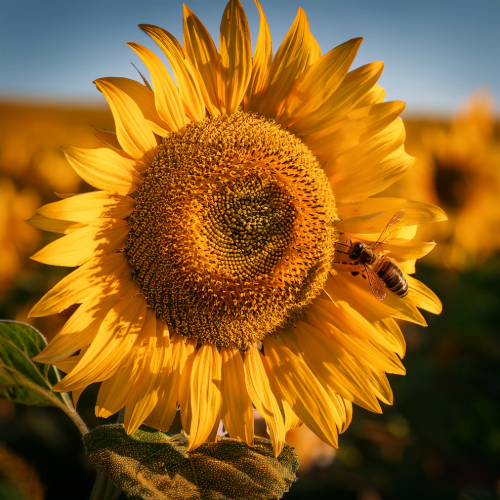Thinking of starting your beekeeping journey?
Beekeeping is a deeply rewarding pursuit, but it comes with its fair share of challenges, especially in the beginning. As new beekeepers, it’s essential to build a strong foundation by understanding the basics of hive setup, colony behavior, and common pitfalls. In this post, we’ll walk through some of the most frequent issues beginners face and offer practical tips to help you start your colony with confidence.
Understanding the Complex Life Cycle of Bees
Bees have a fascinating life cycle that consists of four distinct stages: egg, larva, pupa, and adult. As a first-year beekeeper, understanding these stages is crucial for managing your hive effectively. For instance, recognizing the signs of a healthy brood pattern can help you identify issues early on.
Moreover, each stage requires different care and attention. New beekeepers should familiarize themselves with the duration of each stage and how environmental factors can influence development. This knowledge helps in making informed decisions about hive management and interventions.
Dealing with Pest and Disease Management
Pests and diseases pose significant challenges to beekeepers, especially during the first year. Common issues include Varroa mites, foulbrood, and nosema. Understanding how to identify these threats is the first step in effective management. Regular inspections and monitoring can help catch infestations early.
Furthermore, employing integrated pest management (IPM) strategies can minimize the destruction caused by outside vectors. This includes using screened bottoms, drone trapping, and application of various miticides to keep your colonies healthy for the long haul. Connecting with local beekeeping associations can also provide valuable resources and insights on managing pests and diseases.
Follow this link to our resource page to see some of the tools we have there for managing varroa mites.
Mastering Hive Maintenance Techniques
Proper hive maintenance is critical for the health of your bees and the productivity of your hive. This includes routine tasks such as checking for adequate food stores, ensuring proper ventilation, and managing space within the hive. First-year beekeepers should develop a checklist to ensure all aspects of hive health are regularly monitored. As a new beekeeper, one of the early challenges is balancing the need to inspect versus the want to inspect. Too frequent inspections can cause issues all on it’s own, but not inspecting enough can cause issues to go unnoticed. Finding your balance should be a skill you focus on mastering early on. Most beginners will find inspecting somewhere between 10-14 day intervals to be a comfortable place to start with.
Additionally, learning how to properly handle frames and bees is vital to prevent unnecessary stress on the colony. Practicing gentle handling techniques and maintaining a calm demeanor during inspections can enhance both the beekeeper’s experience and the bees’ well-being.
Navigating Seasonal Challenges in Beekeeping
Seasons greatly affect bee behavior and hive management. For example, spring is a time of rapid growth, while winter requires preparation for survival. As a beginning beekeeper, understanding the seasonal needs of your bees is essential for their success. This includes knowing when to feed, when to add supers, and how to prepare your hive for winter. Winter preparation techniques will vary based on what region you are located and what your area’s average Winter temperature ranges are and how long your Winters are. Understanding what other beekeepers in your area are doing will be an invaluable tool for you.
Moreover, staying informed about local floral availability can help you anticipate when your bees will need supplemental feeding or when they will be most active. Utilizing seasonal calendars and local resources can help you adapt your management practices to meet these changing needs.
Building a Support Network for Continuous Learning
Beekeeping can be a solitary endeavor, but it doesn’t have to be. Building a support network is invaluable for first-year beekeepers. Joining local beekeeping clubs or online forums can provide a wealth of knowledge and experience from seasoned beekeepers. These communities can offer tips, share resources, and provide emotional support during challenging times.
Several very useful Facebook groups are available, such as Beekeeping Basics or Beekeeping For Beginners.
Additionally, participating in workshops and hands-on training sessions can enhance your understanding of beekeeping practices.
Continuous learning not only improves your skills but also fosters a sense of camaraderie within the beekeeping community, making the journey more enjoyable.
Follow this link to our previous post about how to start when getting into beekeeping.
This previous post, lists 5 of the best books for beginner beekeepers to read. We suggest that you read at least 2 books from this list.
The most important takeaway is to always enjoy yourself and enjoy the beekeeping journey.


Leave a Reply